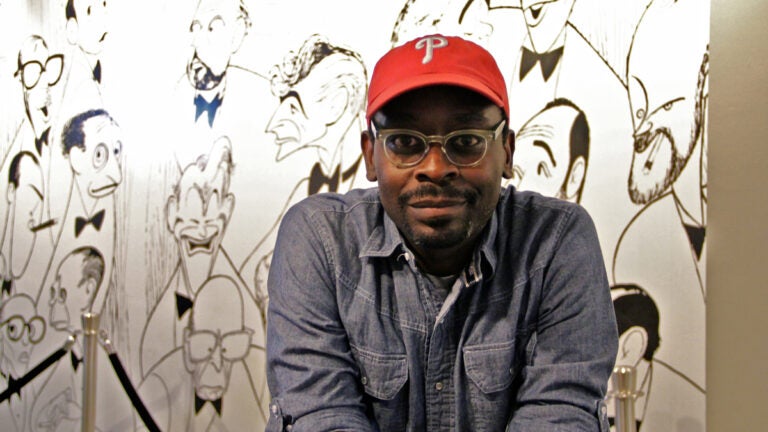Making art in a time of crisis and protest
Actor and playwright James Ijames explains how his theater community is responding to a nationwide reckoning over racism, and how it's managing to make art during a pandemic.
Listen 14:32
File photo: James Ijames is an actor, writer, director and professor of theater at Villanova University. (Emma Lee/WHYY)
The performing arts is one of many industries rocked by the COVID-19 pandemic and trying to find its way through economic uncertainty and glitchy Zoom calls. Then, America was rocked again by the unrest that followed the police killing of George Floyd.
James Ijames, actor, writer, director and professor of theater at Villanova University, explains how his theater community is adapting to new ways of making art and responding to the nationwide reckoning over racial inequality. Ijames’ play “Kill Move Paradise,” which tells the story of four black men in an afterlife waiting room, is now streaming through the Wilma Theater’s website for those who make a donation to Black Lives Matter Philly.

Hear the whole story on The Why
Interview highlights
On how work dried up after the pandemic started
I had just come back from Chicago where a production of the play of mine was just entering rehearsal. Another production in Chicago was in the middle of its run and there was another production that was supposed to go into rehearsal in a month. And within three days, they were either postponed or canceled or closed … It was going to be a while before we were able to get anywhere close to what we were used to or how we could do things. And so, you know, dealing with the sort of personal loss of work and projects is like a collective mourning.
On one benefit of virtual rehearsals
It’s like this freedom, sort of, of conversation. Like anybody can pause at the moment and say, like, “I just want to talk through this thing” and, you know, you have to spend that big moment at the beginning of rehearsal making sure that everyone is OK with it. On stage, we would just dive in … It forces that kind of care that I’m going to definitely carry on to every process.
On his hope for a new way of thinking
My hope is that a lot of radical change comes out of this moment … We evaluate all of the things that we think we must have and even the economy itself. How much do we allow what it’s doing to dictate how we move through the world? Kind of rethinking how we do everything, from how we take care of people, to how we know who to call when there’s someone who has a mental illness and is acting erratic. Is it is it the smartest to call a police officer? Is there someone more qualified in our society to deal with that? That could be called a rethinking. Those things are what the next couple of years is going to be about. And on some level, the arts are connected to that.
WHYY is your source for fact-based, in-depth journalism and information. As a nonprofit organization, we rely on financial support from readers like you. Please give today.






